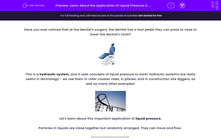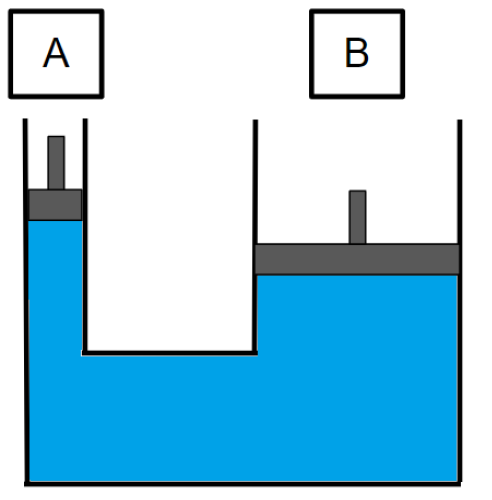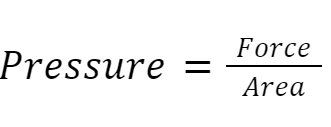Have you ever noticed that at the dentist's surgery, the dentist has a foot pedal they can press to raise or lower the dentist's chair?
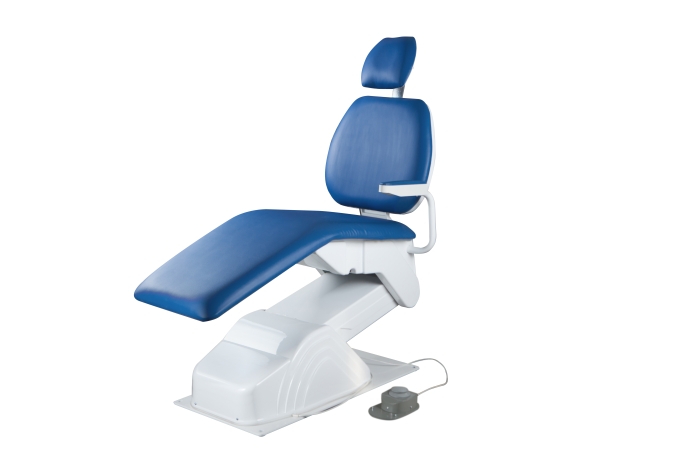
This is a hydraulic system, and it uses concepts of liquid pressure to work! Hydraulic systems are really useful in technology - we use them in roller coaster rides, in planes, and in construction site diggers, as well as many other examples!

Let's learn about this important application of liquid pressure.
Particles in liquids are close together but randomly arranged. They can move and flow.
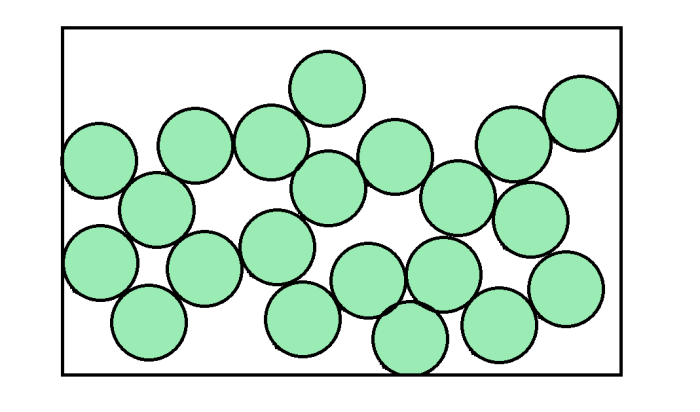
Liquid particles can collide with each other, and with surfaces. This causes pressure.
Liquids have a property that is really useful - they are incompressible. What this means is that you cannot 'squash' liquids into smaller volumes, and this is because the particles in a liquid are so close together.
Liquids are incompressible, so we can use them in hydraulic systems. You can see an example below.
Liquids are incompressible. So, if you press down at point A, the liquid presses up at point B.
What that means is that liquids can pass on pressure from one place to another. If you apply pressure to a liquid at one end, it applies an equal amount of pressure at the other end.
So in our example, if 300 Pascals of pressure are applied at point A, then 300 Pascals of pressure are passed onto point B, acting upwards.
The reason that hydraulic systems can be helpful is linked to the equation for pressure.
In our system, the pressure at A is equal to the pressure at B. But the area at B is much greater than the area at A. What this means is that the force upwards at B is greater than the original force applied at A!
We sometimes call hydraulic systems force multipliers because of this - they increase the force!
Let's imagine that the area at point B is twice as big as the area at point A.
That would mean that any force you apply at A gets doubled, and is twice as big at point B!
These systems are very useful in situations where we want to increase a force. In the dentist's chair example, a hydraulic system allows a small force at a foot pedal to be increased to a greater force, enough to lift up a chair.
Here is another example of a hydraulic system in action, lifting a heavy object.
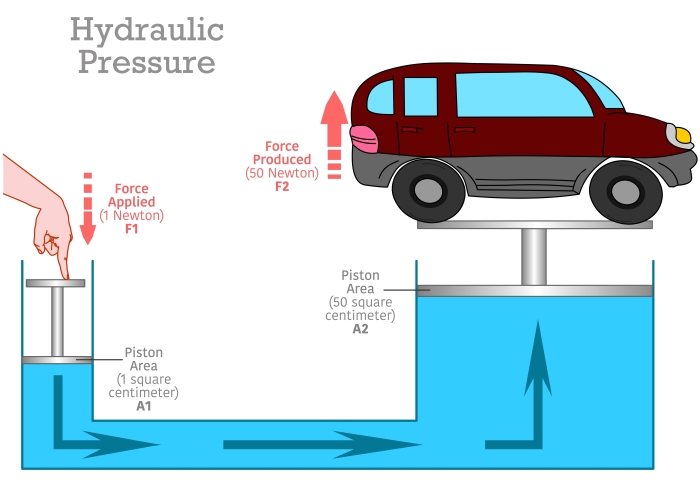
A force is applied down, on the left side. The area on the left is 1 cm2. The liquid is incompressible, so the pressure is transferred to the other side. The other side has an area of 50 cm2, so a force that is 50 times bigger pushes up.
Now that we know a little more about hydraulics, let's try some questions!

